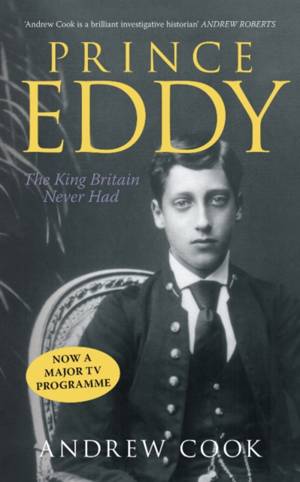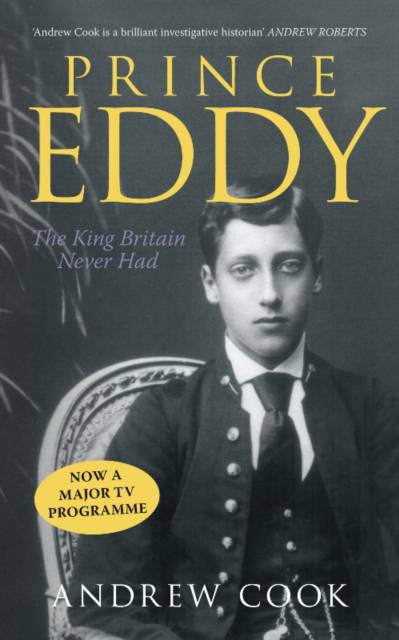
- Afhalen na 1 uur in een winkel met voorraad
- Gratis thuislevering in België vanaf € 30
- Ruim aanbod met 7 miljoen producten
- Afhalen na 1 uur in een winkel met voorraad
- Gratis thuislevering in België vanaf € 30
- Ruim aanbod met 7 miljoen producten
Zoeken
Omschrijving
Prince Albert Victor, King Edward Vll's (r. 1901-10) first son and heir to the throne, popularly known as Eddy, has virtually been airbrushed out of history. Eddy was as popular and charismatic a figure in his own time as Princess Diana a century later. As in her case, his sudden death in 1892 resulted in public demonstrations of grief on a scale rarely seen at the time, and it was even rumored (as in the case of Diana) that he was murdered to save him besmirching the monarchy. Had he lived, he would have been crowned king in 1911, ushering in a profoundly different style of monarchy from that of his younger brother, who ultimately succeeded as the stodgy George V. Eddy's life was virtually ignored by historians until the 1970s, when myths began to accumulate and his character somehow grew horns and a tail. As a result, he is remembered today primarily as a suspect in the Jack the Ripper murders of 1888 and for his alleged involvement in the Cleveland Street homosexual scandal of 1889. But history has found Eddy guilty of crimes he did not commit. Now, for the first time, using modern forensic evidence combined with Eddy's previously unseen records, personal correspondence, and photographs, Andrew Cook proves his innocence. Prince Eddy reveals the truth about a key royal figure, a man who would have made a fine king, and changed the face of the British monarchy.
Specificaties
Betrokkenen
- Auteur(s):
- Uitgeverij:
Inhoud
- Aantal bladzijden:
- 320
- Taal:
- Engels
Eigenschappen
- Productcode (EAN):
- 9780752445922
- Verschijningsdatum:
- 1/01/2009
- Uitvoering:
- Paperback
- Formaat:
- Trade paperback (VS)
- Afmetingen:
- 124 mm x 196 mm
- Gewicht:
- 362 g

Alleen bij Standaard Boekhandel
+ 41 punten op je klantenkaart van Standaard Boekhandel
Beoordelingen
We publiceren alleen reviews die voldoen aan de voorwaarden voor reviews. Bekijk onze voorwaarden voor reviews.











